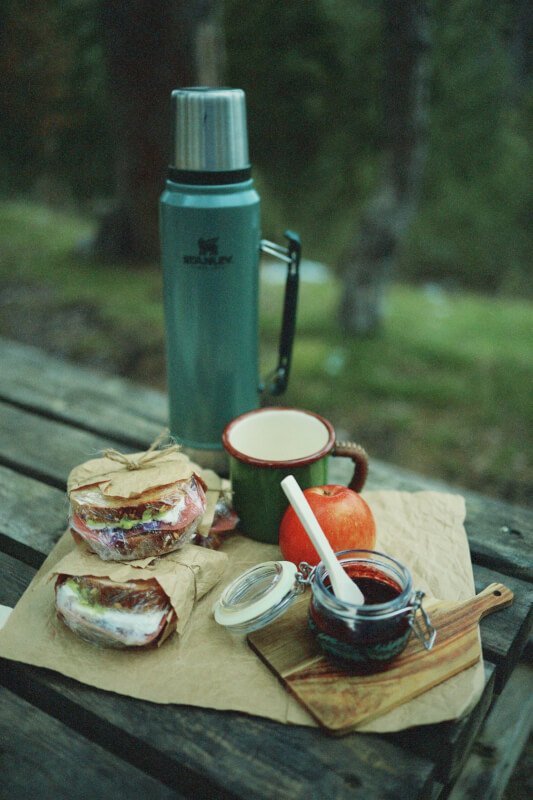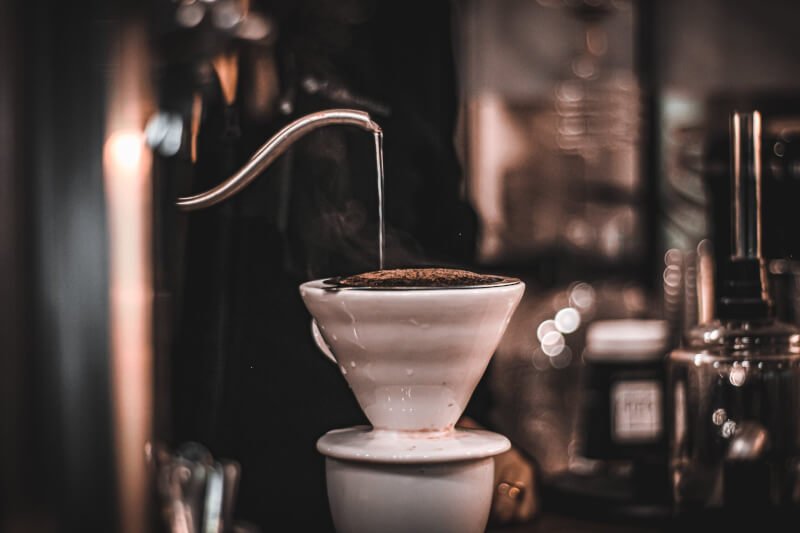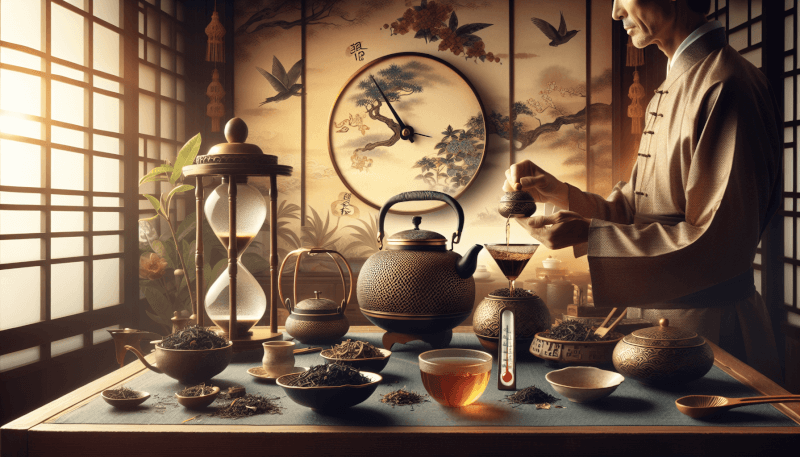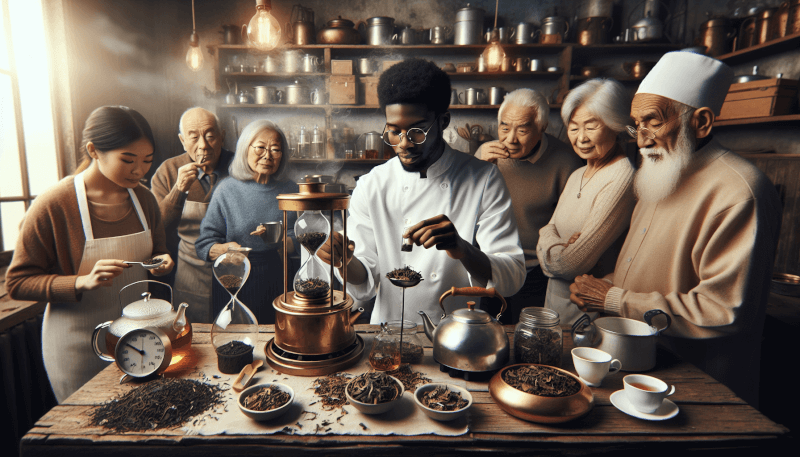Do you want to take your tea brewing skills to the next level? Look no further! In this article, you will find a treasure trove of expert tips that will help you perfect your tea brewing process. From selecting the right tea leaves to mastering the art of steeping, we’ve got you covered. So grab your favorite teapot, put on a cozy kettle, and get ready to discover the secrets of brewing a cup of tea that will tantalize your taste buds and soothe your soul. Get ready to embark on a tea brewing journey like no other!

Choosing the Right Tea Leaves
Choosing the right tea leaves is crucial for achieving the perfect cup of tea. With a wide variety of tea options available, it’s important to consider the type of tea leaves you prefer. Whether it’s black tea, green tea, oolong tea, or herbal tea, each type offers a unique flavor profile and health benefits. Take some time to explore the different types of tea leaves and determine which ones suit your taste preferences.
When selecting tea leaves, look for quality. High-quality tea leaves will generally produce a more flavorful and satisfying cup of tea. Look for leaves that are whole or in larger pieces, as opposed to broken or dusty leaves. The appearance of the leaves can provide an indication of their quality. Freshness is also an important factor to consider. Opt for tea leaves that have been recently harvested and packaged for optimal flavor.
Consider the origin of the tea leaves. Different regions have their own tea-growing traditions and techniques, which can affect the taste and quality of the tea. For example, Chinese tea is known for its delicate flavors, while Indian tea tends to be bold and robust. It’s worth exploring teas from different regions and finding the ones that resonate with your taste preferences.
Proper Water Temperature
Achieving the ideal water temperature is essential for extracting the flavors and aromas from tea leaves. Different types of tea require different water temperatures to bring out their best characteristics. It’s important to understand the optimal temperature for each type of tea to avoid over or under brewing.
Investing in a thermometer can ensure accuracy when it comes to water temperature. There are thermometers specifically designed for tea brewing that can provide precise readings. This will eliminate any guesswork and help you consistently achieve the perfect water temperature.
To heat the water to the desired temperature, boil it and then let it cool for a specific amount of time. For example, green tea is best brewed at around 175°F (79°C), so after boiling the water, let it cool for approximately 2-3 minutes before pouring it over the tea leaves. The process may require some practice, but it’s worth it to achieve the optimal flavor from your tea.
Measuring the Tea
Accurate measurement of tea is crucial in achieving the desired strength and flavor. Using a scale to measure the tea leaves ensures consistency and precision in your brewing process. It allows you to follow the recommended ratio of tea to water, which can vary depending on the type of tea.
Most tea packaging will provide guidelines for the recommended amount of tea to use. However, it’s important to note that personal preference plays a role in determining the strength of your tea. If you prefer a stronger brew, you can adjust the quantity of tea accordingly. Experimentation is key in finding your perfect balance.
Preparing the Tea Infuser
Choosing the right tea infuser is an important component of the brewing process. The size and shape of the infuser can affect the extraction and infusion of flavors in your tea. It’s essential to select an infuser that allows the leaves enough space to expand and release their flavors fully.
Preheating the infuser before steeping the tea helps maintain the tea’s temperature and encourages proper extraction. Pouring hot water over the infuser before adding the tea leaves will warm it up and ensure that the heat is evenly distributed during the steeping process.
After each use, it’s important to clean and dry the infuser properly. Tea leaves can leave residue that can affect the quality of future brews if not cleaned thoroughly. Proper maintenance of the infuser will prolong its lifespan and ensure the flavor of your tea remains uncompromised.

Brewing Time
The brewing time of your tea greatly influences its flavor and strength. Steeping tea for too long can lead to bitterness, while not steeping it long enough may result in a weak and watery brew. Setting a timer for each type of tea can help you achieve consistent results.
Referencing the tea package for recommended brewing time is a good starting point. However, keep in mind that personal preference and experimentation are essential for finding the ideal brewing time to suit your taste. Some tea enthusiasts enjoy their tea strong and robust, while others prefer a milder flavor. Adjusting the steeping time allows you to customize your tea to your liking.
Water Quality
The quality of water used in tea brewing can significantly impact the taste and aroma of the final cup. Using filtered water ensures that any impurities or chemicals present in tap water do not interfere with the delicate flavors of the tea leaves.
Avoid using water with strong odors or high mineral content, as these can alter the taste of the tea. Chlorinated water, for example, may result in a harsh and unpleasant flavor. Opting for filtered or purified water will enhance the overall tea-drinking experience.
It’s also important to maintain cleanliness in your kettle or pot. Regularly cleaning and descaling your brewing vessel prevents any potential contamination that can affect the quality of your tea. A clean kettle ensures that your tea tastes pure and untainted.

Teapot or Cup Selection
Choosing the right teapot or cup for your tea can enhance the brewing experience. Different tea types may require specific vessels to bring out their unique characteristics. Consider the material and size of the teapot or cup when making your selection.
Certain materials, such as clay or porcelain, are known for their ability to retain heat and enhance the flavors of the tea. Size also matters, as a larger teapot may be suitable for serving multiple cups of tea, while a smaller cup allows for a more intimate and focused tea-drinking experience.
To maintain the optimal temperature of your tea, pre-warm the teapot or cup before brewing. This helps prevent the temperature from dropping rapidly, ensuring that your tea stays warm throughout the drinking session.
Storing Tea Properly
Proper storage of tea is crucial to maintain its freshness and preserve its flavors. Storing tea in airtight containers is essential to prevent exposure to air, which can lead to oxidation and deterioration of the tea’s quality. It’s best to use containers that are specifically designed for storing tea, as they are often made with materials that block out light and air.
Sunlight can also affect the quality of tea, so it’s important to store it in a cool, dark place. Avoid storing tea in the refrigerator, as the moisture and odors can seep into the tea leaves and alter their taste.
Additionally, it’s important to keep different types of tea separate to prevent flavor mixing. Teas with strong fragrances, such as jasmine or mint, can easily transfer their aromas to other teas if stored together. Maintaining separate containers for each type of tea ensures that their flavors remain pure and untainted.
Use the tea within the recommended shelf life. Over time, teas can lose their freshness and flavor. It’s best to consume the tea within the designated timeframe to enjoy its optimal taste.

Experiment with Tea Variations
One of the joys of tea brewing is experimenting with different blends and flavors. Don’t be afraid to step out of your comfort zone and try new combinations. Whether it’s mixing different tea blends or adding herbs and spices to your brew, there are endless possibilities to explore.
Blending teas allows you to create unique flavor profiles and customize your cup to suit your taste buds. Consider mixing floral teas with fruity ones or adding a hint of spice to create a personalized blend. The possibilities are endless, and you may discover new favorites along the way.
Additionally, explore teas from different regions. Each region has its own tea-growing traditions and produces distinct flavors. Trying teas from different parts of the world allows you to appreciate the diversity and complexity of tea. From Chinese jasmine tea to Japanese matcha, the world of tea offers a myriad of flavors and experiences waiting to be discovered.
Appreciating the Tea Drinking Experience
Tea-drinking is not just about the flavors and aromas; it’s an experience to be savored and enjoyed. Take the time to fully immerse yourself in the moment and appreciate the nuances of the tea.
When you brew a fresh cup of tea, take a moment to inhale its aroma. Notice the subtle notes and fragrances that emerge. This simple act of mindfulness can enhance your overall tea-drinking experience.
Consider pairing your tea with complementary snacks or desserts. The right combination can elevate both the taste of the tea and the accompanying treat. For example, a delicate green tea pairs beautifully with light pastries or fresh fruits, while a strong black tea complements rich chocolate or nutty flavors.
Lastly, practice mindfulness while enjoying your tea. Set aside distractions and allow yourself to be fully present in the moment. Notice the flavors dancing on your tongue and the warmth of the tea as it soothes and comforts. Tea-drinking can be a meditative practice, providing a moment of tranquility and relaxation in the midst of a busy day.
In conclusion, perfecting the tea brewing process requires attention to detail and a willingness to experiment. By choosing the right tea leaves, understanding water temperature, measuring the tea accurately, preparing the tea infuser properly, timing the brewing process, using quality water, selecting appropriate teaware, storing tea correctly, exploring different tea variations, and appreciating the tea drinking experience, you can create the most delicious and enjoyable cups of tea. So go ahead, embark on your tea brewing journey and discover the wonderful world of tea. Cheers to a perfect brew!


